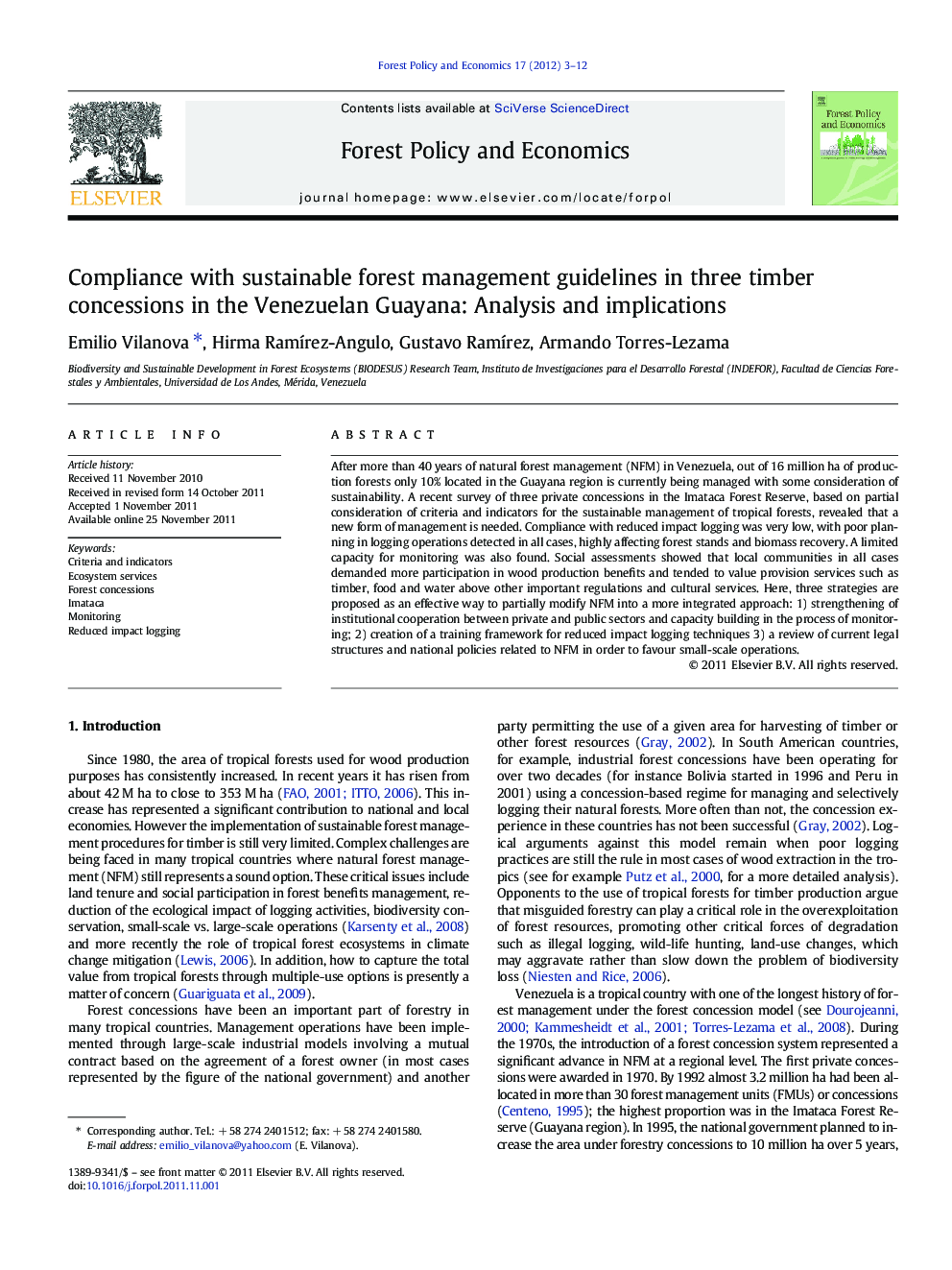| Article ID | Journal | Published Year | Pages | File Type |
|---|---|---|---|---|
| 92112 | Forest Policy and Economics | 2012 | 10 Pages |
After more than 40 years of natural forest management (NFM) in Venezuela, out of 16 million ha of production forests only 10% located in the Guayana region is currently being managed with some consideration of sustainability. A recent survey of three private concessions in the Imataca Forest Reserve, based on partial consideration of criteria and indicators for the sustainable management of tropical forests, revealed that a new form of management is needed. Compliance with reduced impact logging was very low, with poor planning in logging operations detected in all cases, highly affecting forest stands and biomass recovery. A limited capacity for monitoring was also found. Social assessments showed that local communities in all cases demanded more participation in wood production benefits and tended to value provision services such as timber, food and water above other important regulations and cultural services. Here, three strategies are proposed as an effective way to partially modify NFM into a more integrated approach: 1) strengthening of institutional cooperation between private and public sectors and capacity building in the process of monitoring; 2) creation of a training framework for reduced impact logging techniques 3) a review of current legal structures and national policies related to NFM in order to favour small-scale operations.
► We provide an analysis of C&I for sustainable forest management in Venezuela. ► Compliance with reduced impact logging indicators was very low in all cases selected. ► Monitoring of logging and post-harvest operations is weak and not properly documented. ► Local communities are often not included in the benefits of wood extraction from forests. ► Capacity for monitoring and training in RIL techniques are essential to improve management performance.
